
New publishing houses? Image via Flickr Creative Commons, courtesy of WIDEHAUS.
FREE! For the love of all that is chocolate, free us from FREE! *takes soothing breath* I’ve been blogging for over ten years, a witness to the terrifying and extraordinary changes in publishing.
Initially, I was NO fan of self-publishing because entropy is alive and well…even with books. I knew once we opened Pandora’s Publishing, there would be no turning back.
Sometimes I really hate being right.
Amazon (and others) weaponized on-line shopping and launched us into an age of FREE, EASY, CHEAP, ACCESSIBLE and LEGAL.
Or, as I like to call it—Operation F.E.C.A.L.
Amazon wanted to implode traditional publishing. Their goal was to dominate on-line retail and raze the big-box model in order to make room for new brick-and-mortar Amazon stores (smaller and smart-stocked using algorithms). What better way to obliterate publishing than by handing out author participation trophies?
Yet, there have been plenty of consequences. Namely, LOTS of F.E.C.A.L. material out there.
A lot. *swats flies away*
It began innocently enough…
Authors Longed to Be FREE
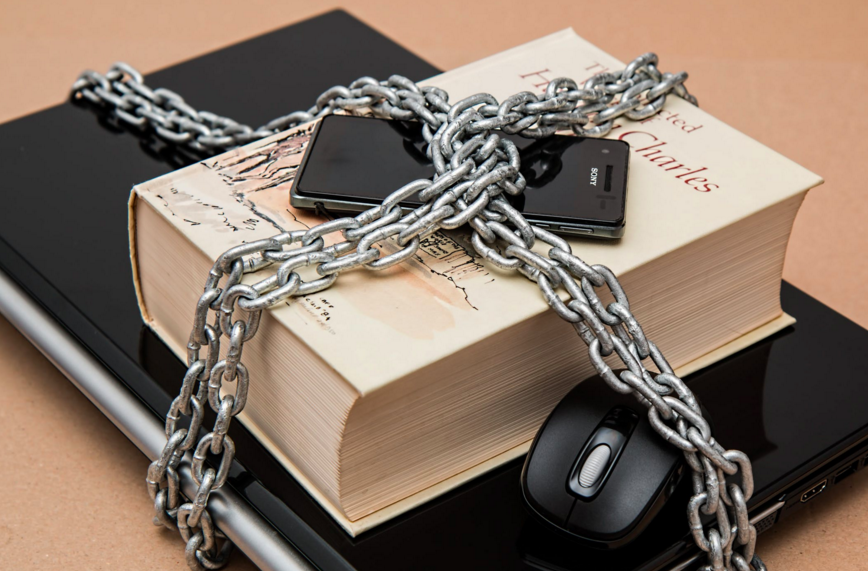
Before social media, Amazon, self-publishing, etc. authors had little to no control over the business of their business. Only two viable publishing options existed—traditional and vanity press.
So let’s make that ONE viable publishing option. Vanity press published anyone willing to pay to play author.
Vanity publishers had a singular standard writers needed to pass—a credit check. If the check cleared or the credit charge went through? Bada bing bada boom! Welcome to being ‘a published author.’
Alas, on the other end, traditional publishers were hardly a panacea. For brevity’s sake, I recommend my posts Real Writers Don’t Self Publish Part One and Part Two.
I want to make it CLEAR that I hold no allegiance to any one form of publishing. All paths have advantages and disadvantages.
The traditional publishing model pretty much tossed authors against a wall like spaghetti noodles. If you ‘stuck?’ Go you! You get another contract.
For more on how the publishing business ACTUALLY works, I’ve already explained, in detail, the ugly truth about traditional publishing and how to actually support the authors we love.
The Book Borg
Anyway, once the big-box bookstores arrived on scene like the Borg suddenly warping into sensor range, writers took the hardest hit. Publishers looooved the big-box concept because their business model relied on massive pre-orders to fund the machine (and still does).
****Take a gander at HOW many books it takes to FILL bookstores that had an average size of 26,000 feet (going as HIGH as 60,000). Can you say KA-CHING?
Publishers reveled in the boom. Meanwhile, many authors who’d previously made an excellent living during the Indie Bookstore era, had to dust off the resume.
Big-box stores bought books in volume. Yet, they ordered a TON of what books were most likely to SELL in volume. Thus, many mid-list authors who’d previously enjoyed a healthy income off twelve, twenty or even forty books now only made royalties off ONE (their most current novel).
Authors who were already household names did better than ever because of simple math and Business 101. What Borders or Barnes & Noble wasn’t going to carry every single Stephen King book ever written?
Nothing personal. Only business.
Problem was, virtually the entire author middle class stood shellshocked, ears ringing, arms loaded with a backlist of excellent books now rendered worthless.
Publishers—smitten with paper—didn’t even consider releasing these titles solely as e-books. Instead, they blithely handed seasoned authors their rights to these mothballed backlists.
Unchained
Amazon (and other self-publishing outlets like Smashwords) breathed life back into great books that HAD passed the gatekeepers. Many could legitimately claim New York Times Best Seller or USA Today Best Seller status.
Self-publishing provided authors who’d passed the gauntlets and invested years cultivating a vetted backlist a fresh way to breath new life into ‘old’ books.
In Christmas of 2009, when e-readers finally tipped into mainstream, readers were dying for titles to load on the new Kindle. Authors who’d defected made bank. These authors also improved self-publishing’s image problem.
Before 2009, most viewed self-publishing as a cheap version of vanity press. It certainly was not seen as a viable publishing path.
But, then writers got creative and soon success stories emerged. The dark horse authors like Hugh Howey and Wool, Andy Weir and The Martian, and Amanda Hocking emerged.
Yet, something ‘else’ emerged.
The Authorpreneur
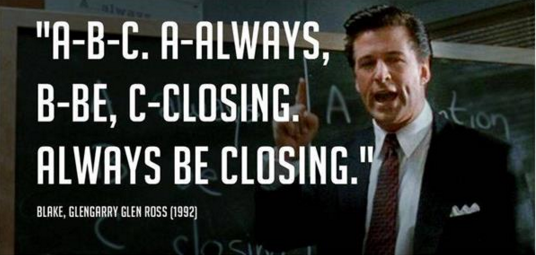
Before Amazon, Smashwords, social media, algorithms, etc. most writers became writers because they loved to WRITE. Sure, I think it’s fair to say most of us wanted to be successful and make money, but cash was not our primary motivation.
Then folks like John Locke changed the literary landscape. In my POV? This is where everything changed (and NOT for the better). Granted, kudos to Locke and his success. I even (tried) to read his How I Sold a Million E-Books in 5 Months, but there were not enough antacids in the world for me to finish.
See, Locke wasn’t writing because of any love for the written word. A book, to him, was a commodity like a cheap cheeseburger (his words). To his credit, he saw and capitalized on a rare alignment of the stars and won big.
Yet, he made bank only because he hit the ground hard with ebooks right as people were starting to use e-readers and there was a dearth of e-books on the market.
Since traditional publishers refused to lower prices, readers swarmed to FREE and .99 books faster than a cloud of Alabama gnats into a fresh glass of sweet tea.
With pretty much the same results.
Readers stuck, mired and drowning and trying to escape the very thing that lured them in. Readers swarmed in for the FREE, only to realize they were trapped in bad writing, terrible formatting, and did I mention bad writing?
Plenty of other authors followed suit with FREE books! And CHEAP books! These writers sold a lot of books and earned some impressive titles.
Yet, it took time for consumers (readers) to catch on that FREE was almost ALWAYS a giant waste of time.
Over the next few years, various other gimmicks caught on. Free books, cheap books, box sets, juking algorithms, and even authors who relied on flat out deception—brand confusion—to garner sales.
I seriously had an ‘authorpreneur’ who did this and gave me this ‘business advice.’ According to this business-savvy person, I could, say, take the ‘pen name’ of Jane Evonovech then make my covers resemble a real Janet Evanovich. Similar colors, fonts, styling, etc.
Because that isn’t shady AT ALL.
SMH.
Back then, Amazon was far from perfecting algorithms, so these Bait-and-Switch Rotex Authors DID sell a lot of books, make a ton of money, and were able to claim NTYBSA status…riding the tails of a legitimate author’s success.
Of course, when this person gave me said ‘advice,’ I parted with my own council. Save for a good attorney. You’ll need one. And I was right.
Also, I prefer to earn my sales and titles on my own merit, thanks.
BOOK BUSY-NESS
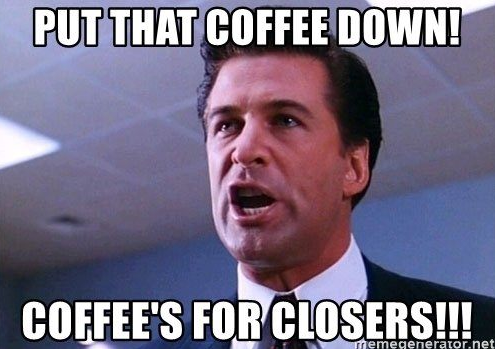
Over the past few years, I’ve lost count of the fads and gimmicks. Amazon often tried launching new ways for readers to discover new authors AND for writers (Amazon) to make money.
The fundamental problem with Amazon has always been the same. They think like John Locke. To Amazon, a novel might as well be a selfie-stick, a tent, a push-up bra or a banana slicer.
There’s no inherent reverence for writing as a craft and an art. In the Amazon business model, consumers are the ‘gate-keepers’ for everything. Yet, when it comes to a book, Amazon can’t refund the readers’ TIME. Sure the book was free, but our time was not.
Consequences of FREE
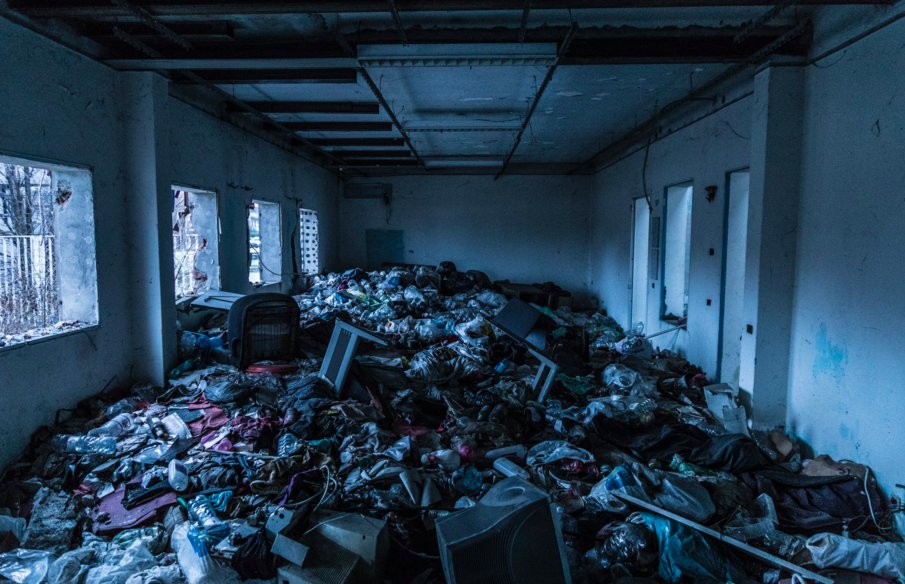
Amazon doesn’t care about ONE author selling millions of books. Why? Easier to have half a million wanna-be-authors sell twenty books.
Then coax them to write more and more and more books that only sell twenty copies. All those eager creatives hitting PUBLISH like pulling a lever on a slot machine and praying for triple 7s.
***Meanwhile paying for cover art, interior design, and promotional material.
The big-box store supported one oligarchy at the expense of the mid-list and new authors. We broke FREE! Only to fuel a brand new oligarchy. A handful of people getting rich off the work of the many.
Sprinkle just enough success to keep the ‘many’ trying their luck.
The rest of us regular folks? Well, we’re left with the landfill of toxic waste hoping to find something worth our time. It’s why I only buy fiction off Audible. If a book sucks (and MANY do, even from Big Five publishers), I can return it with no problem. If I like a book, THEN I buy in paper.
For Love or Money?
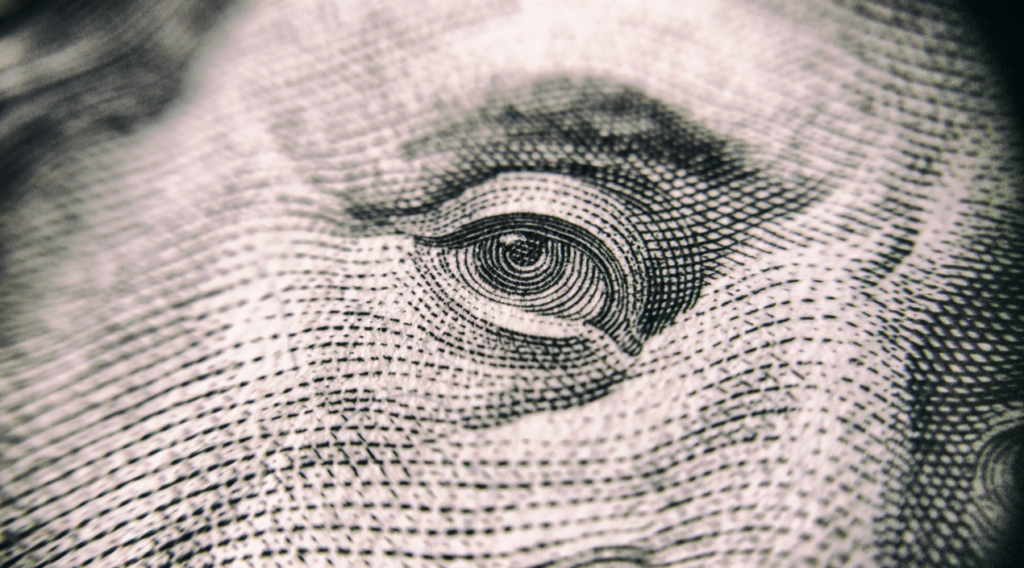
I’ve been in this business long enough to notice the changes. Early on, writers were adamantly opposed to branding, social media, platform-building, etc. All that mattered was the quality of the book because they LOVED and RESPECTED the written word.
It’s why my merely mentioning on-line branding was enough to induce apoplexy.
The problem (as I saw it in 2008) was that eventually traditional publishers were going to require a brand, platform, social media presence as well as a superior book. They had to in order to keep up with (okay, stay alive in) the new F.E.C.A.L. business model.
Borders had imploded and Barnes & Noble was already bleeding. With fewer POS (Point of Sales) locations more people were shopping on-line.
I knew there was no getting out of building a brand and on-line platform, so might as well get started as soon as possible (without gimmicks and juking algorithms and spamming the crap out of everyone).
The whole reason I created the methods I did in Rise of the Machines was so writers had time to write, to learn and grow and improve. What I teach is EVERGREEN. Technology changes, people don’t.
Alas, the lure of easy money is hard to combat.
Too many ‘published authors’ know everything about promotion, yet not a damn thing about punctuation. I used to advise against a pen name, but now?
If I wrote that badly? I’d hide, too.
Where Do We Draw the Line?
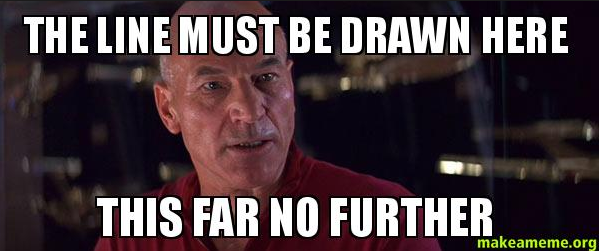
Cait’s post last time, Five Things Your Editor Hates About You summed up a lot of frustration. I’ve always loved blogging, teaching craft, helping writers grow from newbies to real artists.
Self-publishing and indie has had plenty of benefits (I.e. I could publish books on social media for writers, YAY!). But we all need to stop and do a gut check.
Where do we draw the line? What are we willing to do and not do? What is acceptable and what is UNacceptable?
These days, there are so many tricks and gimmicks that the ‘real writers’—those of us in this for the craft and the art—are sinking deeper and deeper into so much F.E.C.A.L. material we cannot outpace it…ever.
If we can’t outpace it, we must OUTSHINE it.
More ‘authors’ know more about how to buy promotional g-strings in bulk than they do POV, pacing, and structure. Operation F.E.C.A.L. has been such a massive success, we’re all eyeball deep in free crap and about to go under for good.
Question is, are we going to contribute more F.E.C.A.L. material? Or will we draw a line and give our craft the respect, time and dedication it deserves? Because a real author writes, reads, learns, grows, takes some lumps from REAL critique, and improves.
Freedom is not FREE.
Real writers learn to spell and punctuate or at least pay or barter with someone who can help them spell and punctuate. AUTHORS learn structure, take classes, and seek mentors.
Real authors push their abilities more than free pens. They don’t shovel out $#!& and call it a series.
Ten years ago, my best advice to writers was to learn the business of their business so they didn’t get fleeced. Now? My best advice is for writers to learn how to actually write.
Spend less time and money gold-plating turds and do the work. Leave the participation trophies to those who’ve ‘earned’ them. The rest of us have real author stuff to do.
What Are Your Thoughts?
Other than I am a super mean jerk? I don’t know about you, but I’m fed up. I don’t want any free books. My in-box is deluged with free.
This is even impacting the Big Five.
I PREORDERED a book five months before release because I loved the author’s first book so much. The second book was….
BEYOND bad.
Of course it ended up a NYT best-seller (probably from pre-sales from people like me who expected better). It was published by Simon & Schuster…and it was a pile of unreadable detritus.
Maybe it’s me.
Do you see traditional publishers seeming to cave on quality to keep pace? Are you tired of having to slog through crap? Is it hard to stick to your guns when so many writers are churning out books like a plastic dog-poo factory?
As for me? I don’t care. I’d love to be a gazillionaire but not if I have to churn out F.E.C.A.L. material.
I love hearing from you!
What do you WIN? For the month of JUNE, for everyone who leaves a comment, I will put your name in a hat. If you comment and link back to my blog on your blog, you get your name in the hat twice. What do you win? The unvarnished truth from yours truly. I will pick a winner once a month and it will be a critique of the first 20 pages of your novel, or your query letter, or your synopsis (5 pages or less).
Upcoming Classes!
Instructor: Cait Reynolds
Price: $55.00 USD
Where: W.A.N.A. Digital Classroom
When: Friday, June 22, 2018. 7:00-9:00 p.m. EST
Remember Moonlighting? Dave and Maddie were the hottest thing ever…and then they kissed…and it was still kinda hot…and then they really got together and settled down to blissful domesticated bickering. And…we all stopped watching.
Because it was boring.
Remember the X-Files? The lucullan feast of smoldering restraint that was Mulder and Scully? Chris Carter refused to give the fans what they wanted with a kiss at the series end, and while fans gnashed their teeth, it was a kind of pro forma gnashing because we were still interested and could still dream about what might happen.
While the episode-based storytelling of television allows romance to be the B-plot (and only when it feels like it), novels are different. Whether we are writing squeaky clean romance or too-much-wasabi-level-hot erotica, we are always dealing with the same basic principle of THE TEASE.
And for all that romance gets a bad rap and is scorned as being ‘easy’ to write, sustaining the delicious, rippling tension and fizzing chemistry between characters is one of the hardest techniques to master. This class can help you (literally) keep the romance alive well past the 80,000-word mark and beyond!
Topics covered in this class include:
- ‘So, I’ll tell you what I want, what I really, really want’: recognizing what the reader wants, what the reader really wants but doesn’t know, and what the reader needs;
- How to Flirt with the Reader: giving an inch but taking a mile when it comes to sweet/romantic/sexy moments;
- Clean and Mean: putting the spark in sweet romance and fanning the flame without risking the brimstone;
- Down and Dirty: putting the emotion in erotica so every encounter leaves the reader panting for more…for more than one reason;
- The Speed Dating Trap: how to balance interest, interaction, and attraction without falling for the trap of insta-love (just add fate/pheromones/booze);
- Making it Last: how to chart a course for romance and pace it so it lasts…all book long…
- So much more!…
A free recording of the class is included in the purchase. CLICK HERE TO REGISTER

Instructor: Cait Reynolds
Price: $45.00 USD
Where: W.A.N.A. Digital Classroom
When: Saturday, June 23, 11:30 a.m. – 1:30 p.m. EST
There’s something dashingly defiant and alluring about a proper young lady who throws caution (and often her petticoats) to the wind and picks up a sword to fight for what she believes in.
Whether it’s Eowyn from Lord of the Rings or Elizabeth (Badass) Bennet from Pride and Prejudice and Zombies, we all love that moment when a woman rises up to prove she’s more than society ever expected her to be.
Yet the market today is flooded with fantasy and historical that carry more trope baggage than Marie Antoinette for a long weekend at the Petit Trianon (sheep not included).
In fantasy, there are girls raised in servitude who suddenly discover their magical powers and royal heritage and must (really quickly) learn to wield swords and spells in order to save the kingdom.
Historical often isn’t much better, taking naive nineteen year-olds and turning them into near-legendary brigands, highwaymen, and pirates within the space of a few months.
Lack of believability, lack of character depth and arc, and lack of world-building/historical knowledge are the three major pitfalls when creating Ye Olde Action Heroine.
Luckily, this class will give writers a map with all literary here-be-hippogriffs clearly marked. Whether your gal is besieged by dragons, in a castle under siege, or in a castle under siege by dragons, this class can help!
This class will cover:
- En Garde! Choosing her weapons wisely;
- Ye Olde Fight Club: getting real about time & training;
- Why, How, and When: how to realistically get her on the path from baking to badassery;
- Hard Knocks: how to use failure and lack of skill mastery to create compelling character arcs;
- The Joan of Arc trap: how to avoid creating miracles and martyrs (unless you really mean it);
- The Pirate Bride: defining femininity in fantasy and historical in order ‘rebel’ against it;
- Consequences: what are the short- and long-term consequences of flouting convention?
- World Building & Re-Building: getting fantasy and historical settings right for your characters;
- And so much more…
A recording of this class is also included with purchase. CLICK HERE TO REGISTER
Instructor: Kristen Lamb
Price: $45.00 USD
Where: W.A.N.A. Digital Classroom
When: Saturday, June 23, 2:00 – 4:00 p.m. EST
Female characters have evolved from ‘damsel in distress’ to the ‘hardcore badass.’ Problem is, fictional females escaped one boring mold only to end up in another even MORE boring mold.
But with lipgloss AND karate!
Strong female characters fascinate audiences on the page and on the screen. From Atomic Blonde to Wonder Woman, Special Agent Scully to Dr. Laura Isles, women can exude power and danger in a variety of ways.
Sadly, the badass female has devolved into a tired trope with the depth of a puddle.
This class is to challenge the concept of the dangerous woman as protagonist and antagonist. Creating a powerful woman involves more than handing her weapons, a black belt, and a terminal case of RBF (Resting B$#@% Face).
-
- Expanding ‘who’ the dangerous woman IS;
- Still waters run DEEP;
- Broadening backstory;
- Motives matter;
- The ‘Tomb Raider’ effect;
- Combat, weapons, tactics;
- Expanding her ‘arsenal’;
- Generating authentic dramatic action/tension;
- Making the dangerous dame ‘likable’;
- AND MORE…
As an author, competitive shooter, and former combatives instructor, there are few characters I LOVE more than a kickass female action hero. Conversely, fewer things vex me more than the tired cookie-cutter female action hero trope. Women can be powerful in a myriad of ways, beyond hand-to-hand combat and shooting everyone in the FACE.
This said, while we’ll explore a wide variety of powerful women, if you long to write that female action hero, this class will (hopefully) make sure you do her justice.
A recording of this class is also included with purchase. CLICK HERE TO REGISTER
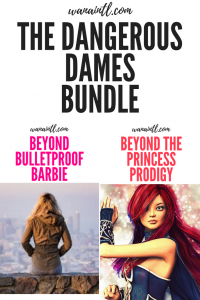
Can’t seem to choose between pirate princesses and bulletproof Barbies? We don’t blame you…and, you don’t have to!
With the Dangerous Dames BUNDLE, get both classes and SAVE MONEY.
Purchased separately, each class is $45. Go for BOTH and get $90 of instruction for ONLY $75. You also get to spend a HUGE part of the day with ME (Kristen Lamb) and my partner in crime Cait Reynolds.
Date: Saturday, June 23, 2018
Price: $75.00 USD
PRINCESS PRODIGY: 11:30 a.m.-1:30 p.m. EST
BULLETPROOF BARBIE: 2:00-4:00 p.m. EST
*Recordings of both classes included with purchase.

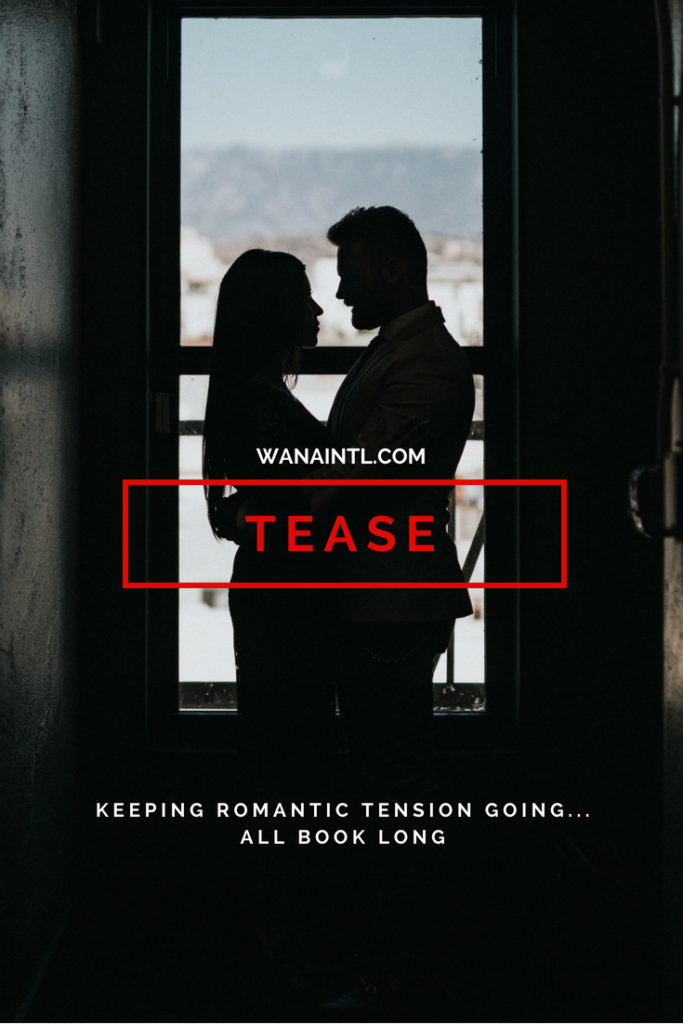
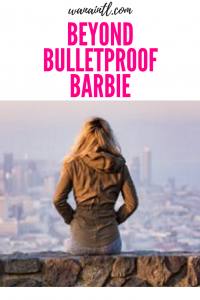







48 comments
1 ping
Skip to comment form
Interesting and thought provoking post.
First, I like dumping the Big 5 publishers for many reasons. Among them the ability to write for a niche market and the diversity of books and themes available.
However, some of the worst books I’ve ever read have been in the last few years, and many of them were published by publishing houses. For the first time in my life I wasn’t finishing books because they were *so* bad.
In a way, it almost feels like fan fic. Some of it is good, some of it okay, and some of it so bad you wonder if it was written by a team of cats sitting on keyboards.
I’m not really sure how to proceed. Certainly, I feel bad for readers. Partly because I am one, and partly because I want people to enjoy reading. But I don’t think putting the power back into the hands of a few publishing houses is the right way to go either. Perhaps Amazon can create an algorithm that could publish the total number of spelling, grammar and punctuation errors in a novel so readers at least have a clue what they’re getting.
Author
Hey, I told you, I got NO allegiances. Some of the WORST books I have read recently are Big 5. F.E.C.A.L. is infecting everything and WE draw the line, regardless the route we take. And I KNOW you and how hard you work to improve. YOU are a real writer, my doll 😉 .
Another great article, KL! I’m totally with you re this F.E.C.A.L. content too and I’ve noticed exactly the same thing with some big name and newer authors works that I’ve purchased this past 12-18 months particularly – quantity over quality – it loses me as a reader ‘for good’. As for ‘free’ all writers should be paid for quality writing. As an aside I only review books that I’ve purchased and enjoyed. That’s what I believe to be an ‘honest review’. And lastly, I’m loving your ‘The Devils Dance’. You got me hooked with your fiction. Will do a full review when I finish it.
The Devils Dance is great isn’t it? =)
AT LAST! Someone calling the spade of crap writing just that. Yay, Kristen! I have so many books from Amazon that fit that bill. And just recently, at a SCBWI critique group, a woman who had ALREADY self-published a story shared it for feedback and geez Louise, it had major problems. We tried to give positive comments on what was good about it (great concept, for example) and yet, because it was already published, she could not hear ANY of the gently-offered constructive remarks. Awwwww, I love your authenticity and am likely addicted to your blogs. (NOTE: while I did set up a children’s website, I’m not really using it as family support has knocked by writing to the curb (ideas piling up!).
Amen and amen and amen! I decided months ago to pull out of Amazon, now where do I get an agent/publisher actually interested in good writing?
This is one of your better posts, Kristen. It almost makes me want to take my trilogy’s first book off Instrafreebie. I have two freebies: the trilogy opener, and the first book of my 5-book series. From my perspective, it seems that ‘free’ is collapsing as a way to get my name out there. I remember the days, just a few years ago, that making an SF book free led to ~1000 Amazon downloads in the first few days. The last time I tried it, I got ~40 downloads. I haven’t bothered since.
You’ve expressed something I’ve thought about for awhile but about which I don’t have the experience to speak. I have worked to have short stories and creative nonfiction published in journals, hoping that is a way of working toward having my novels published. I don’t know if this route will work, but at least I am proud of the work that has been published.
I may be unusual in this, but as a reader, I don’t want any free junk like key fobs, etc. I want good stories.
((AMEN))
99.99999% of the time the only time I take freebie books is when they are very very old works that have been digitized and made available in e-book form (you can find a lot of history books this way. EUREKA!). I can’t even think of an example where I’ve taken a free offer of a recently pubbed book.
I guess because my expectation is if an author stands behind & values his/her work, they have an expectation of charging for it, as I would for my own. Others may not agree with the philosophy, but that’s how it works for me.
Looking for clarity. Places like Amazon and D2D allow those of us who aren’t interested in traditional publishing for a variety of reasons the opportunity to make our work available. I’m not sure where else I would sell my work, other than my website. And if I buy an ebook, which I usually do the first time I read an author, I’m probably going to get it from Amazon. I really don’t look to see who published the author.
I agree that crap is crap, and there is plenty out there, both self-published and traditionally published.
My friend read a well-known author’s latest book and was so disgusted by the typos and grammatical errors that she wrote the publishing house. The person who responded suggested that she mark up the book and return it to them so they could make corrections. She declined to do their job for them.
Author
This is a message to writers. Crap is crap and there is plenty going around on all fronts. WE, however, have to make the choice. I see samples where it is clear the writer has no clue how to even punctuate. There is no story, no structure. I give my edits and immediately get dismissed. “Oh, I see why you were confused. This is the third book in a series.” *Silent screams* NO, this is a CRAFT. A profession not a playground.
…i’ve yet to see a review of a book mention punctuation and grammatical errors. from your remarks, if i’m interpreting them accurately, seems like they should. maybe in addition to price, # of pages, etc., this should be added. i am not being snarky. just reflecting. also best seller lists regardless of what newspaper or such publishes them are just that: lists of which books of the big 5 (give or take) are selling the most of. once again, quantity not necessarily quality. there is a certain trilogy that has made the best seller lists that i could only make it through 5 pages of one and that was with red ink pen in hand correcting things. as for the lists, it’s fascinating to see what books are selling where i live compared to the entire country. there has never been a one to one correlation not just of order but even of titles since i’ve started comparing. your article was very thought provoking. thank you.
Author
Do NOT get me started. Granted, as an author now and not merely a reader I “get” that typos creep in. One or three in a full work. But lately? *face palm* At least do justice to the written word.
Kristen, thanks for this again. Very educational – and irritating. Write on.
Well said Kristen! I’ve never liked the idea of giving my work away for free. I feel that I’ve worked hard enough to get at least something back for my efforts. The issue of giving our work away for free has been going on for so long, I wondered if I was just naive. Thanks for proving me otherwise. 🙂
This is such a good article. Spot on. Thank you. I’ve been telling authors for years that your first book sells your next book. You get one chance to interest your reader in your writing enough to make them a lifelong reader of your work. Don’t blow it. I was just chatting in a bookstore today about how I won’t read a book past the third chapter, if it’s not pulling me in. I won’t slog through a book just to be nice. There are too many other good books waiting to be read and I only have so many years in my life to read them. Back when my first book came out in 2008 through a traditional press, we only had the first three chapters to grab an agent or editor when we sent in a partial. So those three chapters had to be good. So now flash forward to today and since so many books no longer have to grab that agent or editor, those first three chapters may not do their job of pulling the reader in. I don’t have patience for a book or an author who won’t take the time to write a good story that pulls me in. Who has time for that? I understand sales and advertising. Heck my dad was an advertising man and I grew up around it, went with him on Saturdays to deliver proofs. It’s important but it’s not the most important thing. When it becomes all about sales instead of being about giving the reader a good reading experience we lose far more than dollars.
Well said. You get one chance, and if you blow it you have to work really hard on successive books to win it back. Better to put quality first, than to languish in that despair. But I’m afraid there is now a generation of readers who don’t think like we do. I hope it changes, and more people look at QUALITY. There’s that old saying… “The Bitterness of Poor Quality Remains Long After the Sweetness of Low Price (free) is Forgotten”.
How do I agree with thee, let me count the ways…
A big yes to everything you said, Kristen. I’ve been saying this to my writing friends lately, lamenting how so many authors now talk the talk but just can’t be bothered to walk the walk. I for one can’t bring myself to join them in writing crap just to make make $. I have to be proud of my work. I will continue to learn, to grow, to write what I love, not write what’s ‘selling right now’ and to take the time it takes to get it right. Stating a need for that isn’t mean at all – it means you care about the value of the written word. I just wish more people did.
So yes, free books are a problem, and yes, there are a lot of crappy books out there in the indie field, but sadly, 90% of everything is crap. Were the trad. publishers good gatekeepers? Sometimes. But I’ve read many indie books that don’t follow the normal rules of plot and structure that were still better and more original than most of what I see coming from the Big Five.
I’ve had a review column in a newsstand magazine for over twenty years and find myself reviewing as many indie books lately as I do from trad. publishers, some months more. These days we have to listen to our friends, find reviewers we trust or be our own gatekeepers. Yes, we have to work a little harder but I find it a worthwhile endeavour.
The general disdain towards indie publishing troubles me. I wonder if the people who won’t read indie authors also won’t buy music from indie musicians, or art from an artist’s studio rather than from a gallery that has a name? My own musical interests have me buying 80% indie. When it comes to artists, it’s 100%.
I suppose it depends on how mainstream one’s tastes are.
Author
Oh I made SURE to mention I have no allegiance. There are indie works that are GOLD and trad publications that are an affront to storytelling. This is a rally call for WRITERS. No matter the path, excellence should be our vanguard.
The title Operation F.E.C.A.L gave me a good laugh!! Thanks so much Kristen for your honesty and willingness to share your knowledge with us. I absolutely look forward to reading all your posts and learning so much about the publishing/writing industry.
I’m a retirement writer in the UK – unpublished apart from a couple of third-prizes in Scribble magazine which, I suspect, is read only by aspiring writers. I started writing with a practice novel (why not run before you can walk?) but saw sense before trying to self-publish and have mostly been writing short stories for a while. Now, I’ve joined a U3A creative writing group (that’s University of the Third Age, if the concept hasn’t reached the US). We’re self-publishing a collection of our writing (if only to give to relatives at Christmas) and I’ve been editing. Since some of us haven’t written before retirement, we’re a mixed bag regarding styles, grammar and punctuation awareness.
However, since downloading a couple of free ebooks linked to blogs I’ve been browsing, I’ve decided we’re a d*** sight more savvy than lots of ‘published’ writers. My recent reading (and abandoning) has given me more confidence in our efforts. I’ve found courage to start a blog myself, after 3 years of blog evasion, even if only my group reads it. I bought Rise of the Machines when I was working on my practice novel. I guess it’s time I read it
All of this… I’ve been thinking a lot lately about the commoditization of books, especially on Amazon. In light of classes and seminars being advertised that tell people they can make a six-figure income on KDP without even writing a book, I’ve been wondering if my long-held perceptions that the written word can be magic and transporting and life-changing are just a little bit precious in the face of the ecommerce model into which I’m publishing. I walked away from traditional because I wanted control. And I still think that was the right choice. But now I’m fighting to maintain my own commitment to learn equally as much about being a better writer as I’m forced to learn about being a better marketer… I can only think that readers will drive this ship back onto the path eventually. They’ll get tired of buying four books that suck for the same price as one that’s great. Right? Right? god, I hope I’m right…
Excellent article – though I think that the indie writers have simply taken over what used to be called “pulp fiction”, which was also a pile-’em-high, sell-’em-cheap kind of publishing. The trouble with spelling and punctuation is mainly caused by nose-diving educational standards in those obscure arts. And pulp fiction could produce wonderful writers – Raymond Chandler and Georges Simenon both wrote pulp. I think the real problem is how can a not well-known writer beat the curse of obscurity? I’d love to know, though I have 16 books that were published traditionally and five published in ebook.
Excellent article – I think the indie writers have simply taken over the pulp fiction market which was always a pile-’em-high, sell-’em-cheap kind of publishing. Nosediving standards of education in the dark arts of spelling and punctuation explain why so many books seem unedited.
As for free – look at David Gaughran’s articles on the way Amazon Prime’s fund is being robbed by bookstuffers eg.http://davidgaughran.com/2018/06/10/cassandra-dee-mosaic-book-stuffing/ That’s going to collapse soon, I should think.
I love this blog post! Back in the day, when I first got my kindle (end of 2011, if I remember correctly), I was eager to fill it up with books. I put a ton of freebies on there. Looking back, I regret that I wasted my time reading a lot of those, as the vast, vast majority of them were quite bad. I see fewer free ebooks nowadays (I read on some writers’ marketing forum that “permafree doesn’t work anymore,” whatever that means), but a lot of the freebies out there still aren’t good. There are good indie ebooks out there—but it’s a challenge to find them in this tsunami of crap!
Dead right on. I dislike those that write bubble gum content, a quick jolt of a sugar high but leaving a bad aftertaste so quickly into the book. On the other hand, those who write content like Iron Chefs deserve their place. A well cooked home meal or fine dining at a good restaurant fits right in most of my cases, but forget the fast food content from writers.
How to fix it? Good writers need to share what good books they like. I’m tired of the pablum pieces I’ve been reading, I want a good meal of content for my brain to masticate on.
Thanks for the encouragement to not get caught up in the chaos and just keep writing.
POOP invades every area of life. It could be said that civilizations are judged primarily on how well they avoid living in their own poop. The larger the store, the ‘greater the economy’. There should be ‘better quality’ somewhere in these equations, but it seems to be missing.
People ARE poop. We all are. We make bad decisions all the time. Being civilized means being able to walk it back, take it back, return the poop to the sewer and make that feedback stick with a good rant. “big-box” has taken the civil out of civilized day to day living. It’s all BIG this and that.
/The Martian/ is only an example of rarity NOT an example of what you will achieve. You can’t remake /The Martian/ over and over and over… It was a one-off due to the very fact that it was unique – that it wasn’t even remotely like self-pub as it is practiced.
Either do something ground-breaking or trad-pub.
Author
Problem is traditional publishing set up the optimal conditions for F.E.C.A.L. to thrive. They had an opportunity to put all those backlists into e-books. They didn’t. They first catered to the big-box, making the biggest authors bigger. Then, they gave back all the rights, stabbing the good mid-list authors who’d made them money for years. Then, once they realized those authors were making money off backlists they hoarded backlists so no author was getting any out of print work rights back…ever. They mothballed perfectly good books. Why not pay some millennial to format and make covers and offer the vetted books for sale on-line? This would have kept the mid-listers from defecting.
Then, their pricing was stupid. In 2012, they priced ebooks the same as hardcovers, pissing off readers who unleashed their fury over a blatant grift on the authors (with a slew of one-star ticked off reviews over being charged an absurd amount for an ebook). Why didn’t they offer the ebook free with purchase of the hardback?
To date, they’ve yet to change their business model and lower overhead. In a virtual world, why do authors have to pick up the tab for pricey NYC real estate?
An author makes about $1.15 off a $10 book and most new authors get an average of a 10,000 book print run. Do the math and we’d make more money working for Walmart. Additionally, traditional publishers require as much social media ‘activity’ and a lot of it is judged by metrics (again, stupid).
B&N and Borders had plenty of warning what was ahead, that the big-box model was failing. Borders bit it and B&N did….nothing. No opening micro-stores. Nope. They had the same giant stores stocked exactly the same way with no consideration to regional preferences. Unlike indie stores who knew the customers, what they were buying and could promote and shelve accordingly, B&N had a MAP…all spots pre-negotiated with NYC.
Didn’t matter that books that sold well in Seattle didn’t sell at all in TX. Or sold in TX but didn’t sell well in FL. Cookie cutter nonsense that catered to egos instead of customers.
Now, B&N is a giant toy-card-record-game-book store with a former CEO of a toy store running things. It’s all one giant mess, which ticks me off because anyone with a grasp of Business 101 could have saved this $#@!show years ago.
I’ve written I don’t even KNOW how many blogs with business plans that could have countered Amazon’s play. Why didn’t they open e-pub only divisions? New authors could be vetted, traditionally publish and once they sold a certain amount renegotiate for a bookstore placement? But they didn’t do this. They opened the equivalent of vanity press divisions with terms so nebulous/draconian no author with a brain would agree to them and any agent would laugh at.
The acronym F.E.C.A.L. is a brilliant choice. Thanks for a laugh, and more excellent writing advice. My hubby and I were just talking about how many more typos etc we’ve been finding in traditional publications the last few years- it’s disappointing all around! Hear Kristin’s rally cry- let’s not settle, and let’s write some amazing books!!! 🙂
“Maybe it’s me.” It’s not you.
Gold plated poop! 🙂
Thank you for the reminders that writing and working on our craft comes first.
Your article on F.E.C.A.L. was dead on, Kristen. Well said. Lots of food for thought here. Now… how to get traction when you’re a quality writer who cares about words in this modern-day marketplace. A conundrum.
Thanks for this! It’s nice to be reminded (by someone who knows) that quality outlasts quantity/speed.
What really gets my goat is that Amazon (and those who work with them e.g. D2D) refuse to accept Creative Commons-licensed works because they think that means “available free online” – yet they still sell books that are available free online! (Dickens, Austen, etc etc.)
Where would The Martian have been if Amazon had said no, that can’t be a Kindle book, it’s been available free online?
Like you say, there seems to be a determination to cling to old ideas, even if they’re not working, or based on inaccurate assumptions. Grr.
Rant over, going back to work now 🙂 Thanks for the encouragement.
Thank you so much for your brilliant insights. As a reader, I am dismayed, as you are, with the tsunami of free crap, and I’ve cut “free” from my reading choices. As a former English teacher, I cry over the appalling grammar and punctuation that’s out there, never mind content. As a writer, I strive to create good work. I’ve just published for the first time through a hybrid publisher, as it’s impossible to get lit. agents interested in your work, unless you’re a celeb or have a huge online following. Hashtag Fail in both cases, for me. Wasted time on pitches that go nowhere is better spent as writing time. The production of my book has been a real learning curve for me. I’d had no idea how much time and effort is needed between manuscript and final product (including all the editing stages and proof-reading). I think, (I hope,) I’ve published a quality product. Yes, revenue would be great, but a real writer would not want to put the cart before the horse. I so agree with all you say in your blog post.
Thanks for another great blog, Kristen. I’ve fallen for the give a book away free to get people to read my other books, but they often don’t. Sure, my books fly into I-want-freebie’s hands, but do my other books honestly sell as a result? Maybe not. That only makes me wonder about my ability as a writer and makes me scream–what the hell is wrong with my writing? I’m an editor and I know how to write, but maybe our talent just gets lost in the mad scramble for freebies. I read a lot of free crap on Amazon and Smashwords and many get genuinely great reviews, which just leaves me scratching my head–why? Maybe we’re dealing with a plethora of not so discerning readers.
Interesting post with lots to think about my own writing career.
Thanks!
Hi Kristen! Have you been following the rise of Rachel Hollis? Several months ago she had a New York Times best seller. I would recommend the GoalDiggerpodcast interview with her on April 23rd. She shared her journey of being signed with three publishers. I felt she had some great advice for writers. The biggest takeaway for me, was the importance of having 5,000 Facebook friends. Best Wishes to you!
Author
I’ve had 5K FB friends for ages. The problem with relying on any outside social media is one change in ToS and POOF—GONE. Also they juke algorithms and it can become a real pain to keep up with. Any platform done well can yield benefits but a good book is central.
I’ve been on my own concerning writing and publishing, finding my way around (and improving) by simply reading my work again months later and making some changes. I have two books ready to go (they have been edited by me a bazillion times, and by other editors several times..lol) and yet, each editor had her own strengths. One did well organizing paragraphs, another was a grammar guru, and yet another was a past/present/future tense expert. I found my biggest Achilles heel was I keeping in the right tense not only in the chapters, but in the paragraphs as well!
That being said, your article makes me question whether my one book is publisher worthy. People like my work- they just don’t want to publish it. Maybe because my book is more of a crossover because the editors and publishers are all Christian? The book is women’s humor and does talk about God, but He is only sparsely sprinkled throughout the text. Apparently I am neither fish nor fowl because my book is too tame for the secular world, but too suggestive for the Christian world.
I done been spit out for being tepid!
So I went the self publishing route.
Oh, by the way, self publishing AIN’T FREE. Not if you want cover work done and have to pay an artist to create one for you. Egad.
The book isn’t out yet. YET. Frankly, I’d like one more pair of eyes to look at it one more time. A pair of eyes that isn’t afraid to tell me if it’s wet-myself hilarious or moose-drool awful.
Ahem…hint hint.
It’s okay if you decide not to pick me this round…though, do you really want to take the risk of more moose-drool hitting the marketplace?
Seriously though, One thing I don’t see at these Christian writer’s conferences are classes on things like your article. Grammar, punctuation, and verbiage are NOT common sense anymore! I’m going to suggest this to the conference director and see if she can find someone to nip this in the bud. 🙂
I’m an optimist. I trust that the consumer is getting more savvy at spreading word-of-keyboard on the good stuff. Or at least the stuff that others with like tastes will enjoy. More fine tuning of reading choices. Amazon’s sample and ‘look inside’ system are usually enough to give me a pretty good hint about whether I’ll like the rest.
But readers (and writers) have to break through the idea that a book ‘deserves’ their time. I’m now reading any first page the way an agent reads through the slush pile. And I don’t care if it’s trad pubbed or indie-pubbed, ‘Sturgeon’s Law’ applies. (Sturgeon’s Law originated when the late Theodore Sturgeon was accosted at a Sci-Fi convention by a reporter who told him, “Ninety percent of science fiction is crap!” To which Sturgeon replies, “Of course it is. Ninety percent of EVERYTHING is crap.”)
Of course indie-pubbed work has no gatekeeper. But three or four of my now-favorite novels are indie. I found them by word of keyboard. And I expect to find more gems in the same way.
I, for one, don’t mind sorting through the crap for these gems, because I know that, under the trad-pub system, they never would have seen the light of day. Or my kindle, as the case may be.
People talk out of both sides of their mouths. They bemoan the lack of quality in free books, and at the same time they scream to high heaven when a well-written book costs $4.99.
Quality costs. It always will. If people want quality they have to stop having conniptions about forking over a lousy few dollars. And I’m talking a lousy few dollars because most ebooks cost less than $5.
You get what you pay for.
Yes! Yes! Yes! As usual, you are right on point. Most free books are terrible. And the Big 5 have grown lazy with editing. So many errors in NYTBS these days.
That being said, if the Big-5 and other mid-range publishers were smart, they’d sell e-books of their bestsellers off their websites one week before handing them over to Amazon. Only members can order ahead of time. People would flock to get the newest Stephen King, Lee Child, etc. before everyone else did. I see authors with a decent following heading in this direction. I think it would also keep some of the lowlifes from being able to copy real author’s books so quickly.
Thanks for all your great info.
Well said. While I’ve read some great freebie books, over half of them are usually someone’s first draft. I will usually leave a review for a book, whether it is free or I paid for it and it is terrible. I feel other readers should know before downloading it and making the same mistake. Thanks for always being real and making this valid points known in our industry today.
I knew back when all my High School teachers urged me to take up a writing career, that if I wanted to succeed in the traditional writing world, it would take time, learning, polish and being exceptional. I chose to write notes on scraps of paper, get a 9 to 5 job and raise kids. When I retired I took up college courses, hung out in chat sites and though my dream of becoming a good, published author was coming true. Your article hit the nail on the head.
Though I never cut corners, hired quality editors, formatters and cover artists, I found I’m in the same place I was 40 years ago and it still is going to take time no matter the process. I grew up on the classics and good writing and I still see it as an art. I don’t regret the journey, don’t regret not being a best selling author, because I feel I have produced the best book I could. So, my dream of publishing came true, being rich did not. LOL I’m okay with that. Thank you for validating how I have been seeing it play out and that producing a good story is still the only way to do it.
Totally! I don’t care how long it takes I want to grow and get better at this. There is the easy way (slop) or the hard way (gold.) Let’s give readers gold!
[…] https://authorkristenlamb.com/2018/06/free-publishing-bad-books/ […]